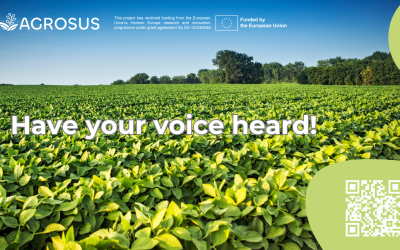Continental region
The Continental Biogeographic Region is a biogeographic region of Europe that extend in a broad band from east to west through the center of the continent.
The Continental Region extends from central France to the Ural Mountains. The southern part of this region is almost completely separated from the larger northern part by the Alps and Carpathians of the Alpine region and the plains of the Pannonian region. More than 25% of the European Union is in the Continental region. Luxembourg is completely within the region. Large parts of France, Germany, Italy, Poland, Czech Republic and Bulgaria are in the region, as are significant parts of Denmark, Belgium, Austria, Slovenia and Romania. Just 3% of Sweden is in the region.

The climate is generally hot in summer and cold in winter, with less variation of temperature in the west, where the Atlantic has a moderating influence. The lands is generally flat in the north and hillier further south, apart from the wide floodplains of the Danube Po rivers.
The region was covered by wetlands and deciduous beech forests after the glaciers of the last ice age retreated. The forests have mostly been cleared to make way for farming and the rivers have been canalized, greatly reducing wetland habitats. Pomerania in Poland and eastern Germany is still thinly populated and holds many lakes, fens and mires. The southern part of the Continental Region has much vegetation in common with the lower levels of the Alpine region and with the Mediterranean region.
In this region, we will carry out field experiments with 9 conventional and 6 organic farming systems covering different crops such as potatoes, maize, soybean, wheat, aromatic plants, barley and sunflowers. We will be creating 3 regional stakeholders communities in Germany, Polland and Ukraine.
Germany
Partner responsible: Agrarunternehmen Starbach Sachsen eG (ASS)
Country Leader: Holger Reinhardt-Weik
Email: agrosus@agrar-starbach.de
Experimental unit
The experimental field is located in the eastern part of Germany near the city of Nossen. Nossen belongs to the Meissen district in the Central Saxon hill country and is 35 km from Dresden. The company cultivates 1,900 hectares. The test field is around 250 m above sea level. In the growing months from March to July, 150 to 350 mm of rain fell in the last three years (January 2020 to December 2022). Global radiation reached an average of 240 W/m² from May to July. A field trial with conventional cultivation of maize, winter barley and winter rapeseed is being carried out at this location.
Pedoclimatic conditions
Type of soil: eroded parabrown earth to Pseudogley made of loess loam (Lö) with strong clayey silt (Ut4)
Mean annual T: 10.3 °C
Mean annual P: 620 mm
Key figures
Farming systems: 3 Conventional
Crops: Barley (A), Maize (A) and rapessed (A).
Crop Link groups: 1
Co-creating workshop: 1
Co-validation workshops: 2
Ukrania
Partner responsible: Polissia National University (PNU)
Country Leader: Tetiana Fedoniuk
Email: tanyavasiluk2015@gmail.com
Experimental field
The experimental field is located in the northern part of Ukraine (N 50°26′; E 28°42, N 50°31′; E 27°41, N 50°31′; E 27°36), on agricultural lands of Chernyakhiv and Zvygel communities, Zhytomyr district, Zhytomyr Region. The experimental fields are located 221-224 m above sea level on Phaeozems, Albeluvisols еtс. The average temperature for the multiyear April-August is 14,3 C, and precipitation is 294,4 mm. ln this location, a field experiment is carried out with conventional and organic cultivation of сorn, winter cereals and sunflower.
Pedoclimatic conditions
Type of soil: Phaeozems and Albeluvisols
Mean annual T: 7.6 ºC
Mean annual P: 530-550 mm
Key figures
Farming systems: 3 Conventional and 3 organic
Crops: Corn, winter cereals and sunflowerswheat
Crop Link groups: 1
Co-creating workshop: 1
Co-validation workshops: 2
Poland
Partner responsible: Uniwersytet Rolniczy im. Hugona Kollataja W Krakowie (UAK)
Country Leader: Agnieszka Synowiec
Email: agnieszka.synowiec@urk.edu.pl
Experimental field
The experimental field is located in the southern part of Poland in Prusy (N 50°07′; E 20°05′), a few kilometres from Kraków. A whole farm has 112 hectares. The experimental field is located 270 m above sea level on degraded chernozem (Umbrisols–FAO). The average temperature for the multiyear April-August is 14.9 C, and precipitation is 257 mm.In this location, a field experiment is carried out with organic and conventional cultivation of potatoes, soybean, and winter wheat.
Pedoclimatic conditions
Type of soil: degraded chernozem (Umbrisols).
Mean annual T: 8.3 ºC
Mean annual P: 612 mm
Coordinates: 50 07 01N and 20◦05 19 E and is 270 m above sea level.
Key figures
Farming systems: 3 Conventional and 3 organic
Crops: Potato (A), soybean (A) and winter wheat (A).
Crop Link groups: 1
Co-creating workshop: 1
Co-validation workshops: 2
Interviews
Gallery
News related
The Co-creation Workshop lands in Poland
The event took place at the University of Agriculture in Krakow on January 22. The workshop was led by Agnieszka Synowiec and Marta Czekaj. It was attended by 58 participants, including 32 farmers, 13 scientists and 13 advisors (which included agricultural consultants...
A Collaboration between CSIC, UPV and UVIGO
Our partners UPV and UVIGO came together for a meeting aimed at testing advanced robotic technologies developed by CSIC at both the Atlantic and the Mediterranean regions. These robots are designed to play a big role in the early detection of weeds across AGROSUS...
AGROSUS launch a survey for farmers across the 11 biogeographical regions to select the best agroecological strategies
AGROSUS (AGRoecological strategies for SUStainable weed management in key European crops) is a four-year transdisciplinary research project. The project aims to identify appropriate tools and agroecological strategies to prevent and manage weeds in relevant crops, in...
Insights from Ukraine’s Workshop
Last October had place a dynamic regional workshop carried out in Ukraine and led by Tetiana Fedoniuk, Country Leader of the Continental region. The workshop witnessed the engagement of diverse experts and stakeholders, including farmers, scientists, government...


















































